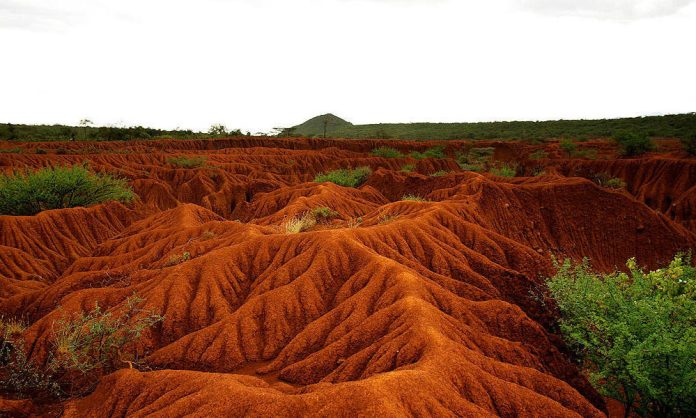Facebook Twitter (X) Instagram Somali Magazine - People's Magazine
Soil degradation in Africa has emerged as a critical environmental issue, with far-reaching implications for agriculture, food security, and economic stability across the continent. The degradation of soil quality, driven by factors such as deforestation, overgrazing, and unsustainable farming practices, threatens the livelihoods of millions of people and poses a significant barrier to sustainable development.
Extent and Causes of Soil Degradation
Soil degradation affects large swathes of Africa, from the Sahel region in the north to the savannas of Southern Africa. Key contributors to this environmental crisis include:
1. Deforestation: The clearing of forests for agriculture and urban development leads to the loss of nutrient-rich topsoil, increasing susceptibility to erosion.
2. Overgrazing: Excessive grazing by livestock strips the land of vegetation cover, exposing the soil to wind and water erosion.
3. Unsustainable Farming Practices: Traditional farming methods, such as slash-and-burn agriculture, deplete soil nutrients and reduce fertility over time.
4. Climate Change: Increasing temperatures and changing rainfall patterns exacerbate soil erosion and degradation, particularly in arid and semi-arid regions.
Impacts of the Soil Degradation in Africa on Agriculture and Food Security
Soil degradation has severe consequences for agriculture, the backbone of many African economies. Degraded soils result in lower crop yields, reduced agricultural productivity, and increased vulnerability to food shortages. For example, in Ethiopia, extensive soil erosion has led to declining soil fertility, threatening the country’s ability to produce sufficient food for its growing population.
Economic and Social Consequences of the Soil Degradation in Africa
The economic impact of soil degradation is profound, affecting not only farmers but entire communities dependent on agriculture. Loss of soil productivity leads to lower incomes for farmers, increased poverty, and migration to urban areas in search of better opportunities. This rural-urban migration places additional strain on already overburdened cities and contributes to social instability.
Efforts to Combat the Soil Degradation
Various initiatives are underway to address soil degradation in Africa. Governments, non-governmental organizations, and international agencies are implementing programs aimed at promoting sustainable land management practices. Key strategies include:
1. Agroforestry: Integrating trees and shrubs into agricultural landscapes to improve soil structure and fertility.
2. Conservation Agriculture: Practices such as minimum tillage, crop rotation, and organic farming help maintain soil health and reduce erosion.
3. Soil Rehabilitation Projects: Programs to restore degraded lands through reforestation, terracing, and the use of cover crops.
4. Education and Training: Providing farmers with the knowledge and tools to adopt sustainable farming practices.
Case Studies of Success
In Niger, the “Farmer Managed Natural Regeneration” (FMNR) program has successfully restored over 5 million hectares of degraded land by encouraging farmers to nurture and protect natural tree regrowth. This initiative has improved soil fertility, increased crop yields, and provided additional sources of income for local communities.
Similarly, in Kenya, the Green Belt Movement, founded by Nobel laureate Wangari Maathai, has promoted tree planting and environmental conservation, helping to combat soil erosion and enhance biodiversity.
Conclusion
Soil degradation in Africa presents a formidable challenge, but concerted efforts and innovative approaches offer hope for reversing this trend. By adopting sustainable land management practices, investing in soil rehabilitation, and supporting local communities, Africa can safeguard its soils, ensure food security, and promote sustainable development for future generations. The fight against soil degradation is not just an environmental imperative but a crucial component of Africa’s journey towards prosperity and resilience.

